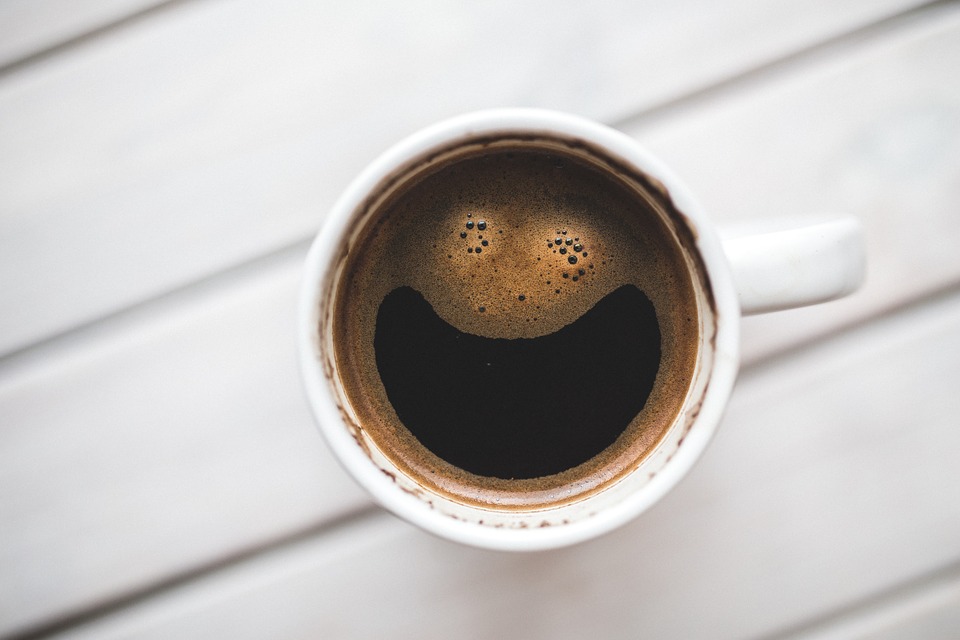
Are you a coffee lover? Do you need coffee to start your day? Imagine the hot, rich, roasted aroma with slightly sweet yet bitter taste.
Did you know that coffee serves a number of health benefits?
Here are 10 reasons why coffee is good for you:
- A serving of coffee contains more antioxidants compared to typical servings of grape juice, blueberries, raspberries and oranges. The antioxidants in coffee may slow down inflammation, reduce the risk of cardiovascular diseases and lower stroke risk.
- Contains essential nutrients. A single cup of coffee contains riboflavin (vitamin B2), pantothenic acid (vitamin B5), manganese and potassium, magnesium and niacin (vitamin B3).
- Improve your energy levels and make you smarter. The caffeine in coffee blocks an inhibitory neurotransmitter in your brain, which causes a stimulant effect. This then improves energy levels, moods and various aspects of the brain function (memory, mood, vigilance, reaction times and general mental function).
- Boost your metabolic rate. Several studies show that caffeine can increase your metabolic rate by 3-11% and increase fat burning as much as 10% in obese people and 29% in lean individuals.
- Lowers the risk of Type 2 Diabetes Mellitus (T2DM). Several observational studies show that coffee drinkers have a lower risk of T2DM.
- Protects your liver against cirrhosis. A study done on Singapore shows that consuming two or more cups of coffee per day decreases the risk of death from liver cirrhosis by 66% compared to non-daily coffee drinkers.
- Fights depression and make you happier. A Harvard study in 2011 found that women who drank 4 or more cups of coffee a day had 20% lower risk of developing depression.
- Prevents cavities. Believe it or not, researchers found that strong black coffee kills the bacteria on the teeth that leads to tooth decay.

- Prevents retinal damage. A study done in Cornell University showed that coffee may prevent retinal damage due to oxidative stress. The chlorogenic acid (CLA), an antioxidant found in the coffee bean provides the protective effects against retinal degeneration.
- Longevity. Two large studies over 18 to 24 years found that men who drink coffee have 20% reduced risk of death while women coffee drinker have 26% reduced risk of mortality.
If you enjoy the taste and can tolerate the caffeine content, feel free to pour yourself a cup or more throughout the day. Just remember, moderation is key. Limit to two to three cups a day for the impressive health benefits.

References:
- Ruxton CHS. The impact of caffeine on mood, cognitive function, performance and hydration: a review of benefits and risks. Nutrition Bulletin. 2008;33(1):15–25.
- Dulloo AG, Geissler CA, Horton T, Collins A, Miller DS. Normal caffeine consumption: influence on thermogenesis and daily energy expenditure in lean and postobese human volunteers. Am J Clin Nutr. 1989 Jan;49(1):44-50.
- Acheson KJ, Gremaud G, Meirim I, Montigon F, Krebs Y, Fay LB, et al. Metabolic effects of caffeine in humans: lipid oxidation or futile cycling? Am J Clin Nutr. 2004 Jan;79(1):40-6.
- Huxley R, Lee CM, Barzi F, Timmermeister L, Czernichow S, Perkovic V, et al. Coffee, decaffeinated coffee, and tea consumption in relation to incident type 2 diabetes mellitus: a systematic review with meta-analysis. Arch Intern Med. 2009 Dec 14;169(22):2053-63.
- George Goh BB, Chow WC, Wang R, Yuan JM, Koh WP. Coffee, alcohol and other beverages in relation to cirrhosis mortality: the Singapore Chinese Health Study. Hepatology. 2014; 60(2): 661-9.
- Lucas M, Mirzaei F, Pan A, Okereke OI, Willett WC, O'Reilly EJ, et al. coffee, caffeine, and risk of depression among women. Arch Intern Med. 2011 Sep 26;171(17):1571-8.
- Namboodiripad PCA, Kori S. Can coffee prevent caries? J Conserv Dent. 2009 Jan-Mar; 12(1): 17–21.
- Jang H, Ahn HR, Jo H, Kim KA, Lee EH, Lee KW, Jung SH, Lee CY. Chlorogenic acid and coffee prevent hypoxia-induced retinal degeneration. J Agric Food Chem. 2014 Jan 8;62(1):182-91.
- Lopez-Garcia E, van Dam RM, Li TY, Rodriquez-Artalejo F, Hu FB. The relationship of coffee consumption with mortality. Ann Intern Med. 2008 Jun 17;148(12):904-14.
Image credit:








